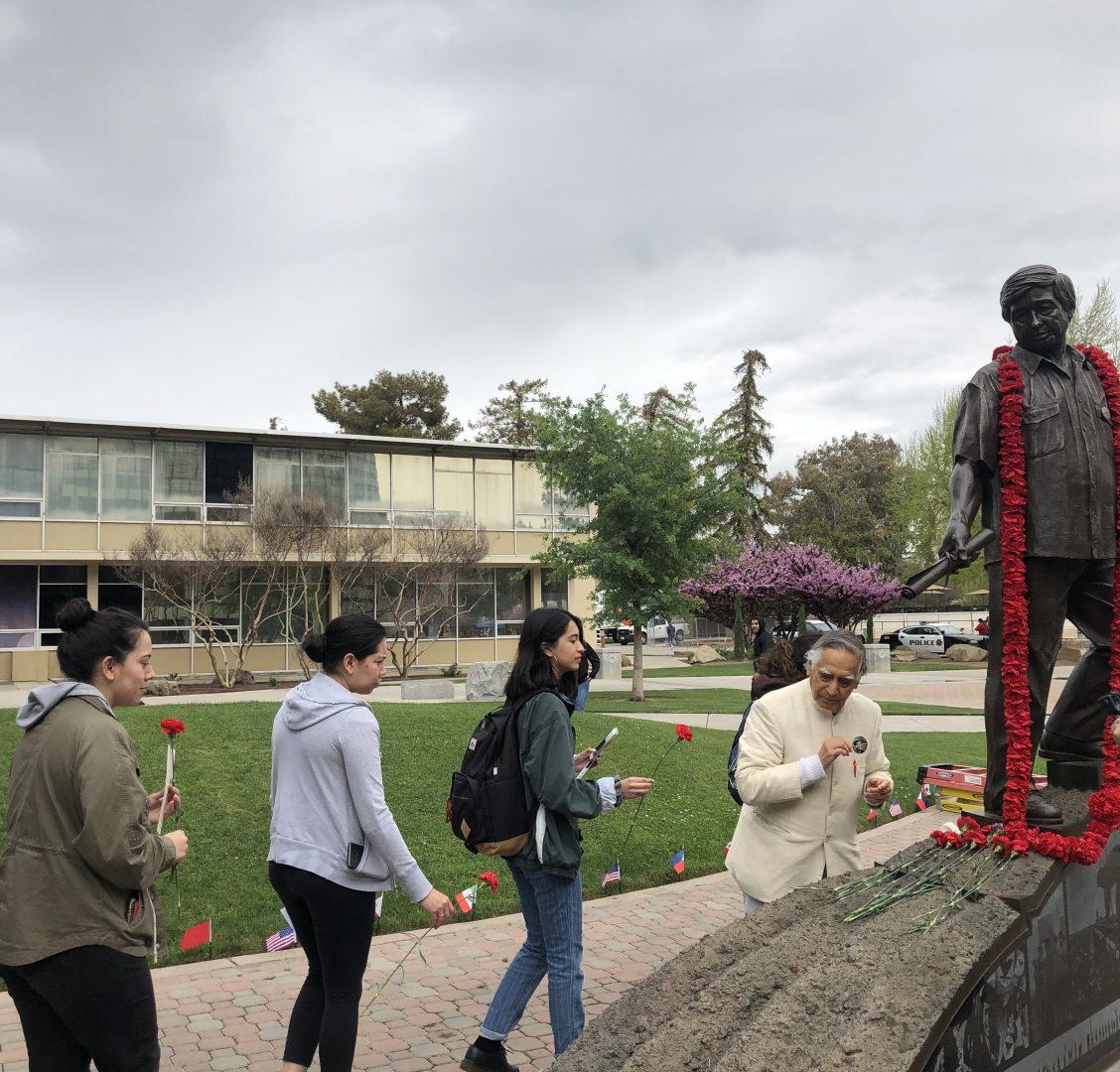The College Assistance Migrant Program (CAMP) and the Cross-Cultural Gender Center once again brought the Cesar E. Chavez Celebration to campus on March 27.
More than 30 people gathered at the Table Mountain Rancheria Reading Room in the Henry Madden Library to commemorate Cesar Chavez’s work for farm workers’ rights.
Roberto Bustos, known as “El Capitan” (The Captain), was the first to give a speech on how he helped Cesar Chavez lead the March to Sacramento in 1966.
“We made history, and I am glad I was part of it,” Bustos said.
The strikers walked for 25 days. Chavez told them to take the backroads to Sacramento so they could walk through 53 towns and inform people about the purposes of their march.
“We made the road,” Bustos said.
The March to Sacramento started on March 17, 1966, in Delano, California, and ended on April 10 in Sacramento. People marched to protest unfair wages and poor working conditions.
After Bustos’ speech, the American flag and the California flag were displayed while a Fresno State student sang the U.S. National Anthem. Immediately after, the United Farm Workers’ flag, Mexico’s flag and the Philippines’ flag were presented.
Fresno State President Dr. Joseph I. Castro thanked all the people who were present during the event.
“The energy and passion and commitment of Cesar Chavez remains today on this university campus,” Castro said. He highlighted the diversity and success that students and faculty show every day on campus.
Castro asked everyone “to reflect on the contributions of so many,” and “to re-double our own efforts to make this university, this community, this Valley, a place where everybody can thrive,” Castro said.
The Vice President of Student Affairs, Dr. Frank R. Lamas and Interim Provost Dr. Harper also gave a brief speech on how important it is to celebrate and learn from people like Cesar Chavez.
Paul Chavez, Cesar Chavez’s son, was present during the ceremony and said that his father, a shy, small person with indigenous features, didn’t look intimidating, but he had strong beliefs that inspired him to speak up and fight for farmers’ rights.
“Just because you are poor, it doesn’t mean you don’t have anything to offer,” Chavez said.
Chavez continued to tell the audience that his father never gave up, even when he felt defeated.
The ceremony continued in the Peace Garden, where Fresno State Mariachi performed “De Colores” while Castro and Chavez put a carnation garland on Cesar Chavez’s statue. Right after, professor emeritus Dr. Sudarshan Kapoor invited the audience to form a line and put a carnation on the statue.
“To me, Cesar Chavez’s work means safety, better pay and respect for the farm workers that provide food for the country day in and day out,” Victor Godinez said, a criminology major at Fresno State.




